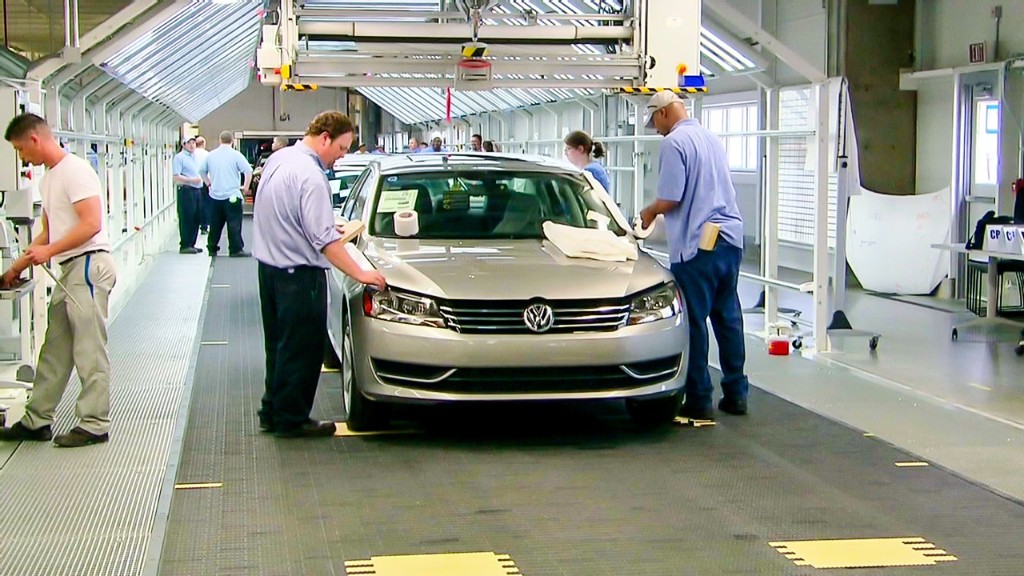
The United Auto Workers are trying to organize a Volkswagen plant in Tennessee, and opposition is building. But it's not management fighting the union, it's Republican politicians.
The Chattanooga factory, which opened in 2011 to build the Passat, employs about 1,550 hourly workers. The three-day vote on whether to join the union will conclude late Friday.
Tennessee Republicans warn that if the UAW wins, the state will lose business from companies that want a union-free environment. They say that workers voting in favor of the union will imperil the standard of living in Chattanooga, as well as economic development across the state.
Republicans are also threatening to refuse to give VW any further tax incentives if the plant is unionized. VW is weighing whether or not to expand the plant and hire more workers to build a new SUV. It wants to get tax breaks and other government help before going forward with the expansion.
The company is denying statements by Republicans that the decision on the SUV will be based on the outcome of the union vote.
Related: Union membership at businesses grows
The VW union vote is unusual because it's not being opposed by the automaker. In fact, anti-union critics charge that VW is siding with the union, a charge it denies. But the company did push back against those pressuring workers to vote 'no' on the union.
"Outside political groups won't divert us from the work at hand: innovating, creating jobs, growing and producing great automobiles," said Sebastian Patta, vice president of human relations at the plant. "Volkswagen America is committed to defending our employees' legal right to make a free choice."
Related: All the cars from 'Comedians in Cars Getting Coffee'
Even though management officially says it's neutral about the vote, VW is also on the record as saying it wants to establish a so-called "works council" of management and hourly employees who would join to come up with methods to boost efficiency at the plant. And VW may not be able to set up a works council under U.S. labor law without a union in place.
The Chattanooga plant is VW's only U.S. factory, and one of the only ones in the world without a works council.
Workers at the VW plant make roughly $19 an hour, compared with about $26 to $28 an hour for veteran hourly workers at the Detroit automakers, although new hires at the unionized plants are making closer to $17.
But unionized workers are usually better paid than their non-union counterparts. Labor Department statistics show that the typical weekly wage of a unionized worker in the private sector is $892 a week, or a little more than $46,000 a year. That's 20% more than their nonunion counterparts.
So far the UAW has been limited to representing plants operated by U.S. automakers General Motors (GM), Ford Motor (F) and Chrysler Group, and their suppliers. Plant closings over the last 15 years have cut into UAW membership.
About 18% of manufacturing workers in the transportation industries -- those building cars, trucks and planes -- are members of unions. While that is sharply lower than the 28% who were unionized in 2000, it's up slightly from 2012 due to hiring at U.S. unionized automakers and auto parts makers during the year.
It's also significantly higher than the 6.7% of private sector workers overall who belong to unions.
The union has long sought to represent workers at a foreign automaker's plant in the South. Automakers from Asia and Europe have opened more than 30 plants in the United States, and more than two-thirds of those plants are in the South.

